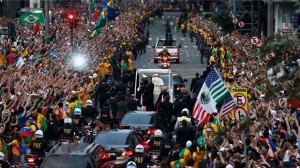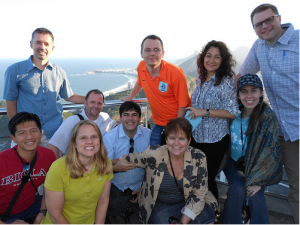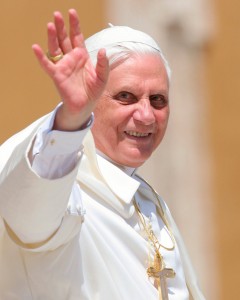The pope and I were both in Brazil last week. I left Rio de Janeiro a few days before he arrived, so we didn’t get the chance to touch base. Should I try to friend him on Facebook? I’m just not sure how social etiquette works in this new digital age.
We both seem to have developed an interest in Brazil, though. Brazil is interesting for a lot of reasons: soccer, its rising economic power, the 2016 Olympics, piranhas, massive street protests, cool music about beautiful people on beaches, Mardi Gras, flip-flops. Those sorts of things.
The pope and I, however, are interested in Brazil for other reasons. You know why the pope was there. I was in Rio, Brasilia and the Amazon with two dozen American and Brazilian evangelical scholars under a program sponsored by the Council for Christian College and Universities and the Nagel Institute. Our group was studying the role of evangelicalism in Brazil. This seems to be a topic on the pope’s radar as well. If you have been following the news of the pope’s visit, you will know that the Catholicism in Brazil has been losing large numbers of followers in the last few decades to evangelicals, particularly Pentecostals. Protestants made up 2.6% of the population in 1940. They are now up to 21%. This makes Brazil both the world’s largest Catholic country and the world’s largest Pentecostal country. This is a very interesting situation.
(For those of you who wish the United States were number one in these sorts of things, you might take comfort in the fact that the U.S. leads the world in Methodists, Jehovah Witnesses, Mormons, Baptists, Jews, Churches of Christ, Scientologists, Amish, Nazarenes, and Unarians — who believe that we can communicate with extra-terrestrials by using fourth dimensional physics. This is also a very interesting situation. But that’s a topic for a different blog.)
Why, though, has evangelicalism been growing so much in Brazil, particularly among the poor? A little historical background:
In 1968, in the wake of Vatican II, Catholic bishops from Latin America met in Medellin, Colombia to reexamine the church’s relationship to Latin American society. They declared that the mission of the Catholic Church was to enact “a preferential option for the poor.” A number of movements sprung from this action, including the development of liberation theology and the formation of something called Base Ecclesial Communities, which sought to address economic inequities and mobilize the poor for social reform movements. And indeed, the pope’s message in Rio on Sunday sounded these themes as well.
This is a Christian program that ought to gain traction in Brazil. For centuries, small groups of elites have controlled political power, owned almost all of the land, directed the economy toward their interests and dictated social norms in society. Most ordinary people have had little opportunity for advancement and social mobility. As a result, some of the greatest economic, political and social inequities in the world can be found in Latin America, including Brazil.
But here is where things get a bit puzzling. As one scholar has noted, the Catholic Church implemented a “preferential option for the poor,” but the poor expressed a preferential option for Pentecostalism. Why?
There have been many explanations for this, but I haven’t found any of them fully convincing. In reporting on the pope this week, NPR explained that Pentecostals are much better at advertising and marketing their product. OK, this may help attract people to church, it doesn’t explain why they stay.
Some people argue that Pentecostal churches preach a prosperity gospel message, promising the poor that God will bless them with wealth if they just commit themselves to the faith. But this message is not preached by many Pentecostals, and this theology seems to be most prominent among the middle class or those that are already on their way up the social ladder.
Some have pointed out that Pentecostalism is very democratized in its structure, vaulting poor and uneducated members into positions of leadership and influence. This is true, but Pentecostalism also produces hierarchical churches where charismatic leaders hold authoritarian sway over their congregations.
And why has Pentecostalism succeeded so well in Brazil, Guatemala and Chile, but it has had very little success in Colombia, Bolivia and Venezuela?
There are other explanations for these things, which require book-length studies to explain. It’s complicated. And there are still a lot of questions for which we don’t have a complete and satisfying answers.
But given the size of Brazil, religiously, politically and economically, it is bound to exercise increasing influence in the Americas in the decades to come.
So pay attention.




